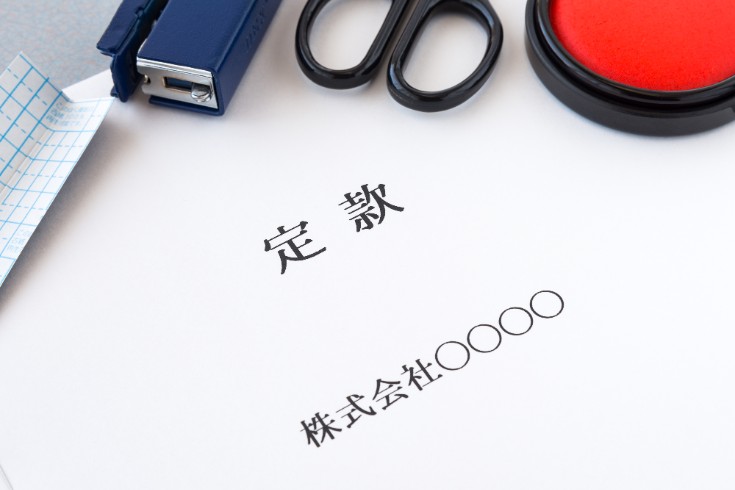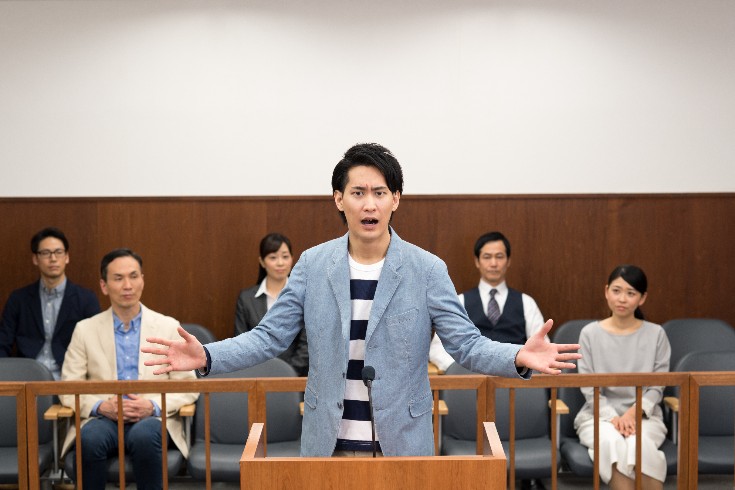Employing Foreign Nationals in the Trading Industry: Key Points for Obtaining a Work Visa

In the modern era of deepening globalization, the Japanese trade industry considers the acquisition of talent with diverse backgrounds a critical management issue for maintaining and expanding international competitiveness. The language skills, cultural insights, and international business acumen of foreign professionals are essential elements for corporate growth, as they handle negotiations with overseas clients, explore new markets, and manage complex international logistics. However, to employ outstanding foreign talent, it is necessary to accurately understand and comply with Japan’s specialized and stringent legal procedures for immigration control. In particular, obtaining the status of residence for employment purposes (commonly known as a work visa) can be a complex and time-consuming process for many companies. Inadequacies in the procedure or misunderstandings of the requirements can lead directly to visa application denials, posing a risk of significant delays in business plans. This article aims to organize the legal challenges faced by companies in the trade industry when employing foreigners as professionals and to present solutions. It will primarily explain the status of residence “Engineer/Specialist in Humanities/International Services,” which applies to many professionals in the trade industry. Based on Japan’s “Immigration Control and Refugee Recognition Act” and related Ministry of Justice ordinances, this article comprehensively discusses the types of visas, specific requirements for acquisition, details of the application process, and points that companies should pay particular attention to, providing practical guidelines for personnel to accurately grasp the overall picture of the procedures.
Options for Work Visas in the Trading Industry Under Japanese Immigration Law
Foreign nationals seeking to engage in professional occupations in Japan must obtain the appropriate status of residence based on their activities. For professionals in the trading industry, the most common and broadly encompassing status is the “Engineer/Specialist in Humanities/International Services,” as stipulated in the Immigration Control and Refugee Recognition Act (Japan) under Appendix Table 1, Category 2.
This status of residence includes three fields: “Engineering,” which requires knowledge of natural sciences such as physical science and engineering; “Specialist in Humanities,” which requires knowledge of social sciences such as law and economics; and “International Services,” which requires a mindset and sensitivity rooted in foreign cultures. Many job functions in the trading industry, such as overseas sales, marketing, trade administration, legal affairs, and accounting, fall under the categories of “Specialist in Humanities” or “International Services.”
It is noteworthy that, due to a legal revision in Japan in 2015 (Heisei 27), the previously separate statuses of residence for “Engineering” and “Specialist in Humanities/International Services” were integrated. This integration was a response to the increasing complexity of the modern business environment. For example, in the trading industry, there is a growing need for cross-disciplinary roles, such as understanding the technical specifications of a product (Engineering) and then conducting contract negotiations with overseas clients (Specialist in Humanities/International Services). This integration has allowed companies to cover such complex job functions under a single status of residence, enabling more flexible utilization of human resources.
However, it is important to distinguish that the “Business Manager” status of residence applies to those who operate as company executives or managers. The “Engineer/Specialist in Humanities/International Services” status discussed in this article is specifically targeted at professionals who perform their duties based on a contract with a company, and it is crucial to clearly differentiate this point.
Understanding the Scope of Activities for the “Engineer/Specialist in Humanities/International Services” Visa in Japan
To correctly apply for the “Engineer/Specialist in Humanities/International Services” visa status in Japan, it is essential to demonstrate that the job duties envisioned in the trade industry clearly fall under one of the activities permitted by this status. In the trade industry, the two main areas of focus are “Specialist in Humanities” and “International Services.”
Jobs Corresponding to Specialist in Humanities
“Specialist in Humanities” refers to jobs that require knowledge in fields such as legal studies, economics, sociology, business administration, and other humanities disciplines. These are professional tasks that demand the application of academic expertise acquired at universities or other higher education institutions. Specific job examples in a trading company include:
- Overseas Market Research & Marketing: Analyzing market trends in specific countries or regions based on knowledge of economics and business administration, and formulating sales strategies.
- Trade Finance & Accounting: Managing funds settlement and accounting for import/export transactions using knowledge of international accounting standards and foreign exchange.
- Overseas Sales & Procurement: Utilizing knowledge of international contract law and business customs to negotiate prices, conclude contracts, and manage delivery schedules with overseas trading partners.
- Legal Affairs & Compliance: Based on knowledge of international legal affairs, reviewing compliance with trade-related laws and regulations, and drafting and reviewing contracts.
It is crucial that these tasks involve not just clerical work but also analysis and decision-making based on specialized knowledge.
Jobs Corresponding to International Services
“International Services” refers to jobs that require thinking or sensitivity based on the culture of a foreign country. This goes beyond merely being able to speak a foreign language; it requires a deep understanding of the culture, society, and historical background of the country where the language is spoken, and the ability to apply this understanding to one’s work. The Immigration Services Agency of Japan’s guidelines list “translation, interpretation, language instruction, public relations, advertising, or overseas trading activities, design related to clothing or interior decoration, product development, and other similar activities” as specific examples of such jobs.
The explicit mention of “overseas trading activities” is particularly important for trading companies. This suggests that many core activities of the trade industry, such as communication with overseas trading partners, negotiations based on local business customs, and product planning that considers cultural backgrounds, are likely to fall under “International Services.”
The distinction between “Specialist in Humanities” and “International Services” holds significant strategic importance for application strategies. This is because the requirements for educational background and practical experience differ. For example, if an applicant has graduated from a university in a related field but has limited practical experience, it may be appropriate to structure the application based on the educational requirements for “Specialist in Humanities.” Conversely, if an individual lacks related educational qualifications but has many years of experience in international sales, structuring the application based on the practical experience requirements for “International Services” may increase the likelihood of approval. Therefore, companies must carefully scrutinize the backgrounds of potential hires and strategically decide which set of requirements is most rational for their application.
The Core of Visa Acquisition: Requirements for Landing Permission Criteria Under Japanese Law
To obtain the status of residence for “Engineering, Humanities/International Services” in Japan, both the applicant and the accepting company must meet the criteria set forth by the Japanese “Immigration Control and Refugee Recognition Act, Article 7, Paragraph 1, Item 2 (hereinafter referred to as ‘Criteria Ministerial Ordinance’).” These requirements are the most critical judgment criteria in the visa examination process.
Requirements for the Applicant Themselves
The educational or practical experience requirements that an applicant must fulfill differ depending on whether they engage in ‘Humanities Knowledge’ or ‘International Services’ activities.
For those engaging in ‘Humanities Knowledge’ (and ‘Engineering’) activities, one of the following must be satisfied:
- Graduation from a university with a major in subjects related to the knowledge necessary for the intended activities, or having received an education equivalent to or higher than this.
- Completion of a specialized course at a Japanese vocational school with a major in subjects related to the knowledge necessary for the intended activities (it is required that the title of ‘Specialist’ or ‘Advanced Specialist’ be awarded).
- Having over 10 years of practical experience in the activities intended to be engaged in (including periods of study at a university or similar institution in related subjects).
What is crucial here is the ‘relevance’ between the major studied at university and the job duties. For example, if someone who graduated from the economics department engages in trade finance activities, the relevance is clear. However, if a graduate of the literature department engages in the same activities, it becomes difficult to explain the direct relevance to their major, increasing the risk of being denied permission.
On the other hand, for those engaging in ‘International Services’ activities, the following requirements must be met:
- Engagement in activities such as translation, interpretation, language instruction, public relations, advertising, international trade operations, design, product development, etc.
- Having at least three years of practical experience in activities related to the intended services.
However, there is an important exception. For university graduates engaging in ‘translation, interpretation, or language instruction,’ the three years of practical experience are not required.
Requirements for Japanese Companies Accepting Foreign Workers
There are three important requirements that Japanese companies must fulfill when accepting foreign workers.
Firstly, the specificity of the job duties. The work that foreign nationals are engaged in must require specialized skills or knowledge and must not consist primarily of “simple tasks” that anyone can perform. For example, even if employed as a trade clerk, if the job duties are limited to copying documents, packing parcels, or simple data entry, it will be deemed as lacking specialization and may result in disapproval. In the application, it is necessary to clearly demonstrate that the job duties are specific and specialized.
Secondly, the appropriateness of the remuneration. The Standard Ministerial Ordinance explicitly mandates that the amount of remuneration for foreign nationals must be “equal to or greater than the remuneration received by Japanese nationals engaged in the same work.” This provision is designed to prevent the unfair exploitation of foreign workers and to consider the impact on the domestic labor market. Setting a significantly lower salary compared to Japanese employees with the same job duties can be a direct cause for disapproval.
Thirdly, the stability and continuity of the company’s business. The Immigration Services Agency of Japan reviews whether a company can stably and continuously employ foreign workers and continue to pay their salaries. In particular, newly established companies or those with unfavorable financial statements are required to submit business plans, profit and loss statements, and other documents to objectively prove the future prospects and financial health of the business.
Organizing these requirements, we get the following table:
| Requirement Category | Humanities Knowledge | International Services |
|---|---|---|
| Educational Background | Graduation from a university in a related field (or equivalent education) or completion of a specialized course at a Japanese vocational school is required. | Generally not required. However, for translation, interpretation, and language instruction work, university graduates are exempt from work experience requirements. |
| Work Experience | If the educational background requirement is not met, over 10 years of relevant work experience is necessary. | In principle, more than 3 years of work experience in related services is required. |
【Practical Guide】Details on Work Visa Application Procedures in Japan
When hiring a foreign national from abroad, the process typically begins with the application for the issuance of a “Certificate of Eligibility (COE).” This system involves the Minister of Justice in Japan pre-certifying that the activities a foreign national will engage in within Japan meet the requirements for residency status before they enter the country.
Procedure Flow
The general procedure using the Certificate of Eligibility (COE) is as follows:
- The accepting company will apply for the “Certificate of Eligibility Issuance Application” at the regional immigration bureau that has jurisdiction over the company’s location. The application is typically made by a staff member of the company acting as an agent.
- The regional immigration bureau reviews the application documents. The review period usually ranges from one to three months.
- If the review is approved, the Certificate of Eligibility (COE) will be issued to the company.
- The company then sends the original COE to the foreign national who is abroad via international mail or similar means.
- The foreign national submits the received COE and other necessary documents to the Japanese embassy or consulate in their own country to apply for a visa.
- After the visa is issued, they enter Japan. Upon landing at a Japanese airport or similar entry point, a residence card is issued.
An extremely important point to note is the validity period of the COE. If the foreign national does not enter Japan within three months from the date of issuance, the COE will lose its effect. Therefore, it is necessary for both the company and the prospective employee to promptly prepare for entry into Japan after the COE is issued.
Details of Submission Documents and the Corporate Category System in Japan
The documents required for submission vary depending on the size and management status of the accepting company. The Immigration Services Agency of Japan classifies companies into the following four categories and simplifies the documents required for each category:
- Category 1: Companies listed on Japanese stock exchanges, mutual insurance companies, national and local public entities, etc.
- Category 2: Organizations or individuals whose total amount of withholding tax on salary income for the previous year’s legal record totals 10 million yen or more.
- Category 3: Organizations or individuals (excluding Category 2) who have submitted the total table of legal records for the previous year’s employee salary income withholding tax, etc.
- Category 4: Organizations or individuals not falling under any of the above categories (such as newly established corporations).
This category system can be seen as a type of risk assessment by the Immigration Services Agency of Japan. Large and stable companies belonging to Categories 1 and 2 are considered to have high social credit and a high probability of compliance, thus they are significantly exempt from submitting documents. On the other hand, small and medium-sized enterprises and newly established corporations classified under Categories 3 and 4 need to provide more detailed proof of business stability and employment certainty, hence they are required to submit numerous documents. This means that the reliability of the company itself is also strictly evaluated during the application review process.
The range of submission documents is extensive, but the main ones are as follows:
Documents Common to All Categories
- Certificate of Eligibility Application Form: The latest form can be downloaded from the Ministry of Justice website. The official name is “Certificate of Eligibility Application Form.”
Form page: Immigration Services Agency of Japan “Certificate of Eligibility Application” - Photograph (4cm tall x 3cm wide) 1 piece
- Return envelope (with postage stamp for registered mail affixed)
- Documents proving the applicant’s educational background and work history: diploma, transcript, certificate of employment, etc.
Documents Required According to Corporate Category
- Category 1 Companies: Materials proving eligibility for Category 1, such as copies of financial reports or documents certifying listing on the stock exchange. Other documents related to business content are generally not required.
- Category 2 Companies: A copy of the total table of legal records for the previous year’s employee salary income withholding tax, etc.
- Category 3 Companies: In addition to the documents for Category 2, materials clarifying the content of the applicant’s activities (such as a copy of the employment contract) and materials clarifying the business content (such as company brochures, certificates of registered matters, etc.) are required.
- Category 4 Companies: In addition to the documents for Category 3, a copy of the most recent fiscal year’s financial statements (income statement, balance sheet, etc.). If the newly established company does not have financial statements, a business plan for the next year must be submitted, and the stability and continuity of the business must be specifically explained.
Application Destination and Review Period
Applications must be submitted in person at the office of the Regional Immigration Services Bureau (Regional Immigration Bureau, its branch offices, or its field offices) that has jurisdiction over the location of the company’s principal office. While applications by mail are not accepted, online applications can be made through the Residence Application Online System. The standard processing time for review is publicly stated to be from one to three months; however, during peak periods (such as around March, coinciding with graduation season) or due to the complexity of individual cases, the process may take longer.
Key Points to Avoid Denial of Work Visa Applications in Japan
Applying for a work visa in Japan does not guarantee approval simply by meeting the requirements and submitting the necessary documents. An analysis of the denial cases published by the Immigration Services Agency of Japan reveals common pitfalls that companies should avoid. Understanding these risks in advance and taking appropriate measures is key to a smooth visa acquisition process.
Mismatch Between Educational/Work Background and Job Duties
This is one of the most frequently cited reasons for visa denial. Examiners scrutinize how an applicant’s specialized knowledge gained at university or past job experience will be utilized in the job they plan to undertake in Japan. For instance, a case where a vocational school graduate who majored in jewelry design applied to work in IT translation and interpretation services was denied because the relevance between the major and job duties was not recognized. Companies have the responsibility to explain in documents such as the rationale for hiring why “this individual” is necessary, and how there is a strong connection between the person’s expertise and the company’s business needs, both concretely and logically.
Lack of Specialization in Job Duties
If the job duties applied for are deemed to be simple tasks that do not require specialization, the application will also be denied. For example, an application for interpretation and translation duties may be rejected if the actual amount of work is extremely small and the majority of the duties consist of simple tasks such as customer service in a store, merchandise display, and cleaning, which do not align with the purpose of the residence status. In addition, for small companies applying for broad management tasks such as “accounting and labor management,” the volume of work sufficient to employ a full-time professional is also scrutinized. Job descriptions must clearly demonstrate that specialized tasks comprise the majority of the work.
Issues with Compensation
If the remuneration amount stated in the application is unfairly low compared to the salary level of Japanese nationals engaged in the same work, this becomes a clear reason for denial. For example, there was a case where an application for translation and interpretation duties at an import-export company was denied because the applicant’s monthly salary was 170,000 yen, while the monthly salary for a Japanese national in the same position was 200,000 yen. This not only fails to meet the legal requirements but also gives the impression of low compliance awareness within the company.
Applicant’s Misconduct
If the applicant is already residing in Japan with a status of residence such as “Student,” their past residence status greatly affects the examination. In particular, if it is discovered that the applicant has worked significantly beyond the 28-hour per week limit for part-time work by students, which is the principle under Japanese law, for a long period, the change to a work visa may be denied due to “unsatisfactory residence status.” This is because past rule violations are seen as concerns for future conduct during residence.
Credibility Issues of the Company
The credibility of the company itself, which forms the basis of the application, is also questioned. Cases leading to denial include when there is no actual office at the location stated on the application form, inconsistencies in the submitted financial statements, or when the company’s representative mistakenly responds to inquiries from the Immigration Services Agency during the examination process that “there are no plans to hire such a foreign national.” The visa application process is not just an individual’s procedure but also a test of the entire organization’s credibility. Common to these denial cases is the lack of consistency and credibility in the overall content of the application. Application documents should not be independent documents but must be consistent and form a convincing narrative that aligns the applicant’s background, the company’s business activities, the employment contract, and the reasons for hiring. Any inconsistency or doubt in one part can lead examiners to question the credibility of the entire application, increasing the likelihood of a denial decision.
Conclusion
In the trade industry, the process of employing foreign specialist personnel is extremely important for enhancing a company’s international competitiveness. However, it simultaneously requires a deep understanding of Japan’s stringent immigration control laws. As detailed in this article, obtaining the “Engineer/Specialist in Humanities/International Services” status of residence is a core procedure in this process. The key to success lies firstly in demonstrating a clear and logical connection between the applicant’s educational background and work history, and the job description provided by the company. Secondly, ensuring that the job content possesses the required level of expertise and that the compensation meets or exceeds that of Japanese nationals, as per the legal requirements. Thirdly, proving the stability and continuity of the company’s business based on objective documentation. Missing any of these requirements carries the risk of application denial. Companies must not view the application process merely as a clerical procedure but as a vital opportunity to demonstrate the legitimacy of their business plans and talent strategies to public authorities, and therefore must prepare with utmost care.
Monolith Law Office has a wealth of experience in providing legal services related to the acquisition of work visas discussed in this article to a wide range of clients, both domestic and international. Our firm is staffed with multiple experts who are not only qualified as Japanese attorneys but also hold foreign legal qualifications and are English speakers, enabling us to accurately address the complex legal needs demanded in international business settings. From strategic advice on the application process for status of residence to the preparation of application documents and negotiations with the Immigration Services Agency of Japan, we offer consistent support to ensure that our client companies can smoothly secure global talent. If you have any inquiries regarding the theme of this article, please do not hesitate to contact our firm.
Category: General Corporate





















